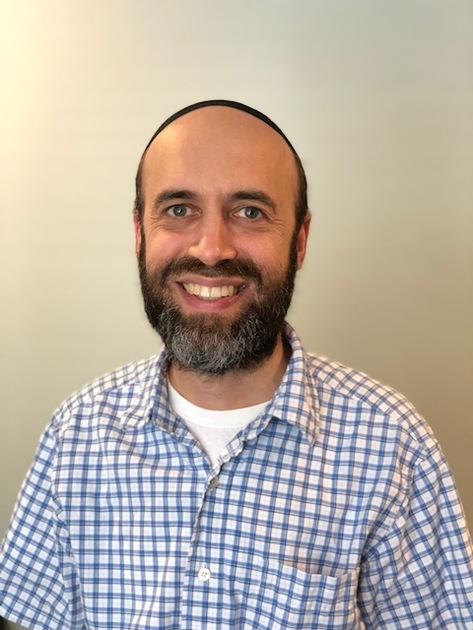
Of all the professions, the issue of free will is particularly compelling for psychotherapists. Patients can come to the therapist with a great variety of destructive habits and poor choices. Understanding the underlying causes of these problems may be of value, but actually overcoming resistance to change is where the real challenge lies. Psychologists are constantly exploring the power of free will, as well as the limits of free will. Jewish philosophy is a very fertile area in which one can explore and come to a better understanding of these issues. I once attended a Nefesh conference, in which some of the speakers explored the question of free will. I will discuss two of the presentations below and in doing so, explore the interface of divine providence, free will, and mental health.
One of the presenters spoke about Rabbi Joseph B. Soloveitchik’s philosophy of suffering and evil, the latter often being a cause of the former. Rabbi Soloveitchik taught that Jewish tradition has two concurrently running perspectives regarding suffering and evil: the perspective of “thematic Halakha” (Halakha means “law”) and the perspective of “topical Halakha.” Thematic Halakha attempts to represent how Hashem views the world. From Hashem’s all-seeing perspective and all-good purposes, there is no such thing as evil. Even events that give rise to great suffering vanish when the totality of the universe is viewed simultaneously, bathed in His light. The universe is a puzzle, and each event is in its place to facilitate the growth of each person and, in God’s good timing, bring the world to its ultimate redemption, a messianic age. Topical Halakha, on the other hand, takes the completely opposite view. Topical Halakha has a heart filled with compassion for people’s sufferings, toil, and struggles, and maintains that evil and suffering are very real, and it is our constant duty to resist evil. Thus have Jews existed throughout the ages: Taking strength from the teaching that Hashem’s creation is tov m’od (very good, as Hashem says on the sixth day of creation) and serves ultimately good purposes, while at the same time well aware of the need for tikkun, repair of a very imperfect world.
A second presenter gave a talk entitled Bashert (“God’s will”) vs. Free Will. This presenter, who was a psychiatrist, began the presentation stating that there was little that he could say on the subject that had not been expounded on in intricate detail countless times over. He stated that Jewish thinking embraces both the notion that Hashem foresees and arranges events in the world, but at the same time affirms the existence of man’s free will. The presenter then said that the difficult question for mental health providers is the extent to which patient disorders should be viewed as bashert (Hashem’s edict, not within the patient’s control) or as the patient’s faulty choices. The presenter drew a distinction between conditions that are improved by medication and conditions that are not. As examples of the former, he cited depression and, to some extent, Obsessive Compulsive Disorder, while the latter, he stated, are exemplified by addictive gambling or substance abuse. He stated that disorders that are successfully treated by medication are obviously caused by biological factors, over which the patient has little control, and thus they are, in a sense, bashert. He observed that there is no medication that helps with addictive gambling or substance abuse disorders, which he said, indicates that these behaviors arise from patient choice/free will, rather than from Hashem’s decree.
I believe that both presenters were describing different aspects of the same paradox, which is based on the apparent contraindications arising from looking at the world from Hashem’s “point of view” versus looking at the world from our own limited point of view. From Hashem’s perspective, there is no distinction between events that are inevitable and those that are not yet determined, because He exists outside of time and for Him everything that will happen has happened already. From Hashem’s perspective, free will, like evil, vanishes in the face of His sublime designs. In short, in Hashem’s eyes, all is bashert and all is good. However, from our perspective, evil and suffering are real, and we have the commandment and free will to fight it. Bashert is the all-good shield that spiritually protects us, while free will is the sword, which we use to fight our very real physical battles on this earth.
In my psychological practice, I see, on a daily basis, the ongoing tension between bashert and free will. I believe it is impossible for a person (even a nonreligious person) to be truly emotionally balanced, if he does not come to terms with this tension. For example, some patients have excessive reliance on divine providence, without taking sufficient steps to improve their situation. Such an attitude can lead to neglect of children or of personal needs. While such a patient may not admit it, this attitude often can contribute powerfully to a depressed state. Research clearly indicates a strong correlation between depression and feelings of helplessness (that is, one’s inability to improve one’s situation). This is not surprising. Humans are born with an inherent desire to develop mastery over their environment — just observe a two-year-old trying to get candy off a shelf — and it is, I believe, an echo of Hashem’s charge to man to “rule over…the whole earth” (Beraishis 1:26). If man sees himself as helpless, he is alienated from one of the purposes for which he was created, and this alienation gives rise to depressive feelings.
On the other hand, sometimes a person is so aware of his free will choices that he can become tremendously burdened by them. If everything depends on our choices, then every step could be a misstep. One burdened by his ability to choose may constantly consider and reconsider his choices, because the next step could be a disaster. Thoughts of Hashem’s hashgacha (“control of the world”) and the solace such thoughts could bring are drowned out by the urgent need to seek better understanding, in order to make better choices and to avoid disaster. In short, our longings, needs, and moral responsibility are simply too great to carry on our own shoulders. Without an awareness of Hashem’s ultimate good plan, and emotional surrender to it, a person is much more vulnerable to developing an anxiety disorder. In addition, there are many elements of our experience, which it is especially important to cooperate with rather than just overcome. This is particularly true of our emotions. A person who is exclusively focused on his choice may fall into the misconception that negative emotions are merely obstacles to be driven out of one’s consciousness. Forcefully driving the emotions out of consciousness can actually cause a host of emotional disorders. A person with this propensity needs to learn how to relax and accept his feelings, rather than believing everything is a matter of choice. Paradoxically, through the process of accepting his emotions, he will eventually gain mastery over them, by learning how to channel them.
The goal, of course, is to find balance and draw strength from both the bashert and free will perspectives, using each one as needed. When overwhelmed by the ability to choose, we must learn how to yield to forces greater than ourselves. It gives tremendous peace and soothing reassurance to draw on a conception of a loving God, who is guiding that process, but we cannot become too consumed with surrender, lest we miss out on the delights of striving, effort, and choosing.
While I agree with the second presenter, the psychiatrist, that the debate around bashert versus free will is very relevant to mental health professionals, I disagree with his resolution of the matter. Depression cannot simply be a matter of bashert, and response to medication does not remove the free will aspect of a disorder. Consider the robust research finding that Cognitive Behavior Therapy has a similar outcome to antidepressant medication treatment in depressed patients. Rather than confining a particular diagnosis to either bashert or free will, I believe we should use the dual view advocated above and acknowledge that both forces are in operation. Of course, there is a biological aspect of depression, as there is to many disorders, but there is also a strong element of choice. Let us consider the basis of Cognitive Behavioral Therapy. Cognitive Behavioral Therapy is based on the theory that the patient’s behavioral and cognitive choices perpetuate depressed states (and many other mental health problems). In this therapy, the patient is taught to be more aware of depressed thinking (e.g., “I’m a failure and I’ll always be one”) and behaviors (e.g., avoiding social interaction), and then is coached on how to choose better thinking patterns and behaviors.
The truth is that every mental disorder has biological, emotional, cognitive and behavioral dimensions. Of those four dimensions, the first two, biology and emotions, are minimally influenced by our choices. We do not choose our genetics. We also do not choose our feelings; they just arise in us, and then we have to deal with them and hopefully channel them in a positive direction. Cognition is more subject to choice than biology or emotions, but less subject to choice than behavior. Cognition, like emotions, often spontaneously arises in our minds, but it is much easier to choose a different line of thinking than to “think away” an emotion. Behavior is the most subject to choice. It is more tangible than cognition or emotion, and it is rare that a behavior will simply “arise spontaneously” within a person. I believe that Jewish Law’s emphasis on the importance of ethical behavioral choices, rather than on choices in thought or emotion, is based on this assumption that behavior is the sphere most governed by free will. Of course, there are situations where biology or circumstance can so overwhelm a person that he may, in fact, lose his ability to choose and act as the result of an insane fantasy or reflex-like impulse. Nonetheless, such situations are the exception, and in most human behavior, choice does exist. The fact that psychotherapy helps in such a wide range of disorders, many of which are also responsive to medication, indicates that mental health is rarely merely driven by biology, but is rather a complex interplay of different forces, which include elements of destiny and free will.
In order for a person to grow emotionally or spiritually, it is important to acknowledge the biological, emotional, cognitive and behavioral dimensions of himself. Each dimension has lessons to teach about bashert and free will, human responsibility and its limits. If we find a successful balance between these perspectives, we can feel Hashem quietly, lovingly, guiding our lives, while, at the same time, we can experience ourselves as co-creators with Him.
This essay appears in Written Upon Our Souls, by Michael Milgraum (published in 2022 by Targum). Michael Milgraum is a Licensed Clinical Psychologist, former attorney and author, who has a private practice in Kensington, Maryland.
© 2022 Michael Milgraum

 Previous
Previous
